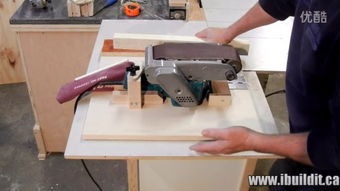4×36 Belt Sander: A Comprehensive Guide
Are you in the market for a reliable and efficient belt sander? Look no further than the 4×36 belt sander. This versatile tool is a favorite among woodworkers, DIY enthusiasts, and professionals alike. In this detailed guide, we’ll explore the features, benefits, and specifications of the 4×36 belt sander, helping you make an informed decision for your woodworking needs.
Key Features

The 4×36 belt sander is designed with a range of features that make it a standout choice in the market. Here are some of its key features:
| Feature | Description |
|---|---|
| Size | 4×36 inches, providing ample workspace for large projects |
| Power | 3 horsepower motor for powerful sanding performance |
| Variable Speed | Adjustable speed settings for different sanding applications |
| Cast Iron Base | Sturdy and durable construction for long-lasting use |
| Tool-Free Belt Change | Quick and easy belt replacement without tools |
These features make the 4×36 belt sander a versatile tool that can handle a wide range of sanding tasks, from smoothing rough surfaces to achieving a fine finish on wood projects.
Benefits of Using a 4×36 Belt Sander

Investing in a 4×36 belt sander offers several benefits, making it a valuable addition to any woodworking shop or home workshop. Here are some of the key advantages:
-
Increased Efficiency: The large sanding surface allows you to work on larger projects more quickly and efficiently.
-
Improved Sanding Quality: The powerful motor and variable speed settings provide consistent and precise sanding results.
-
Reduced Effort: The belt sander’s design reduces the physical strain of sanding by distributing the workload over a larger area.
-
Cost-Effective: The 4×36 belt sander is a cost-effective solution for achieving professional-quality sanding results.
How to Use a 4×36 Belt Sander

Using a 4×36 belt sander is a straightforward process. Here’s a step-by-step guide to help you get started:
-
Secure the Workpiece: Place your workpiece on a stable surface and secure it using clamps or a vise.
-
Adjust the Speed: Set the desired speed based on the sanding task at hand.
-
Position the Belt Sander: Align the belt sander with the workpiece, ensuring that the sanding surface is parallel to the workpiece.
-
Start Sanding: Gently guide the belt sander across the workpiece, applying even pressure to achieve consistent results.
-
Change the Belt: Once the sanding task is complete, replace the belt as needed.
Comparison with Other Sanding Tools
When it comes to sanding tools, the 4×36 belt sander stands out from other options like orbital sanders and random orbital sanders. Here’s a comparison of the three:
| Sanding Tool | 4×36 Belt Sander | Orbital Sander | Random Orbital Sander |
|---|---|---|---|
| Size | 4×36 inches | 5-7 inches | 5-7 inches |











